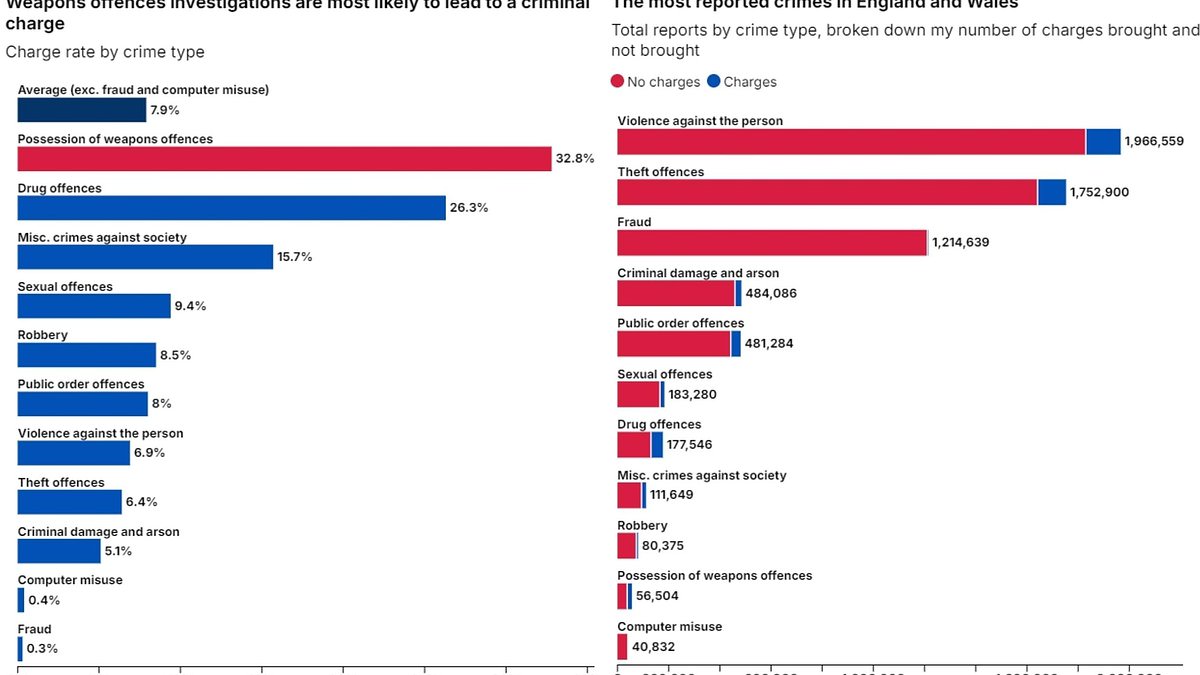Nearly a third of possession of weapons offences result in a criminal charge being made.
It means, as per analysis of almost 6.5million incidents, it’s the crime with the highest charge rate.
This is more than four times the average charge rate (excluding fraud and computer misuse) in England and Wales of 7.9 per cent.
Around 56,500 possession of weapons offences were reported to police in the year to March 2024. This includes carrying knives as well as guns.
More than 18,500 resulted in a charge.
Because of how the Government tracks these statistics, some charges will relate to offences that occurred in previous years. Despite this, officials tally up charge rates by comparing the figures from the same year.
Possession of weapons offences was the second-least reported type of crime, only behind computer misuse.
Drug offences had the second-highest charge rate. Out of 177,500 reports, 46,600 (26 per cent) led to a charges being brought by the Crown Prosecution Service.
‘Miscellaneous crimes against society’, which do no fit into any other category and do not always have a direct victim, such as skipping bail or dangerous driving, had the third highest charge rate of 15.7 per cent.
Around 111,600 incidents were logged by the police, and more than 17,500 resulted in a charge.
The most commonly reported crime type, violence against the person, which saw nearly 2million alleged incidents in the year to March 2024, had a charge rate of 6.9 per cent, with around 136,500 incidents leading to a charge.
At the bottom of the list, fewer than one in 300 fraud reports resulted in someone being charged.
Just 3,600 criminal charges stemmed from more than 1.2million reports of fraud in the year ending March 2024.
Government statistics show 312,000 incidents (around a quarter) were reported to Action Fraud – the national police lead on fraud – in the year to March 2024.
The remaining were logged by banks (46 per cent) and Cifas (29 per cent).
These reports are investigated by a customer’s bank or Cifas, which will try to track down the crooks and the stolen cash.
Not all instances of fraud are reported to police, unlike with other crimes, because victims are encouraged to contact their bank as a first port of call. They might end up not telling the police if the banks ends up refunding them.
More than one in six reported crimes in England and Wales is fraud, according to the Office for National Statistics (ONS).
It makes it the third-most common offence, behind theft (27 per cent) and violence (30 per cent).
